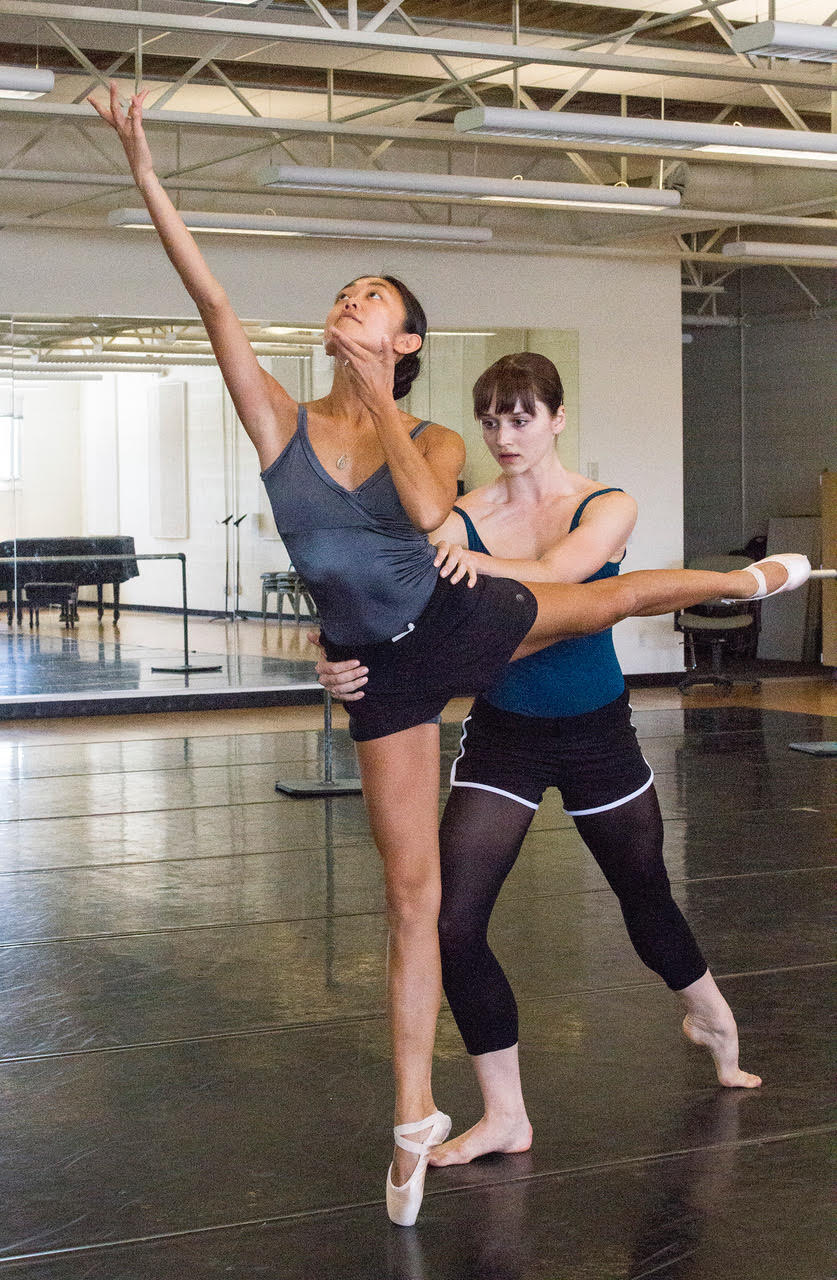One of dance’s most powerful functions is its capacity to express something so profoundly that the audience watching it connects to it immediately. As we have listened to the voices of the #MeToo movement that always have been there but suddenly gained the frequency and volume which has asked us to empathize on a deeper level than what we have found previously.
In Empatizzare (which translates from Italian to empathize in English) by Peggy Dolkas, which is the Utah Arts Festival’s dance commission this year, Dolkas sets on the critical challenge. It often is hard to observe and recognize empathy but in dance, which really is the text our bodies write to translate how we experience and confer meaning in our lives, empathy immerses the performance as we see the artists on stage helping each other and responding astutely and acutely to every movement.
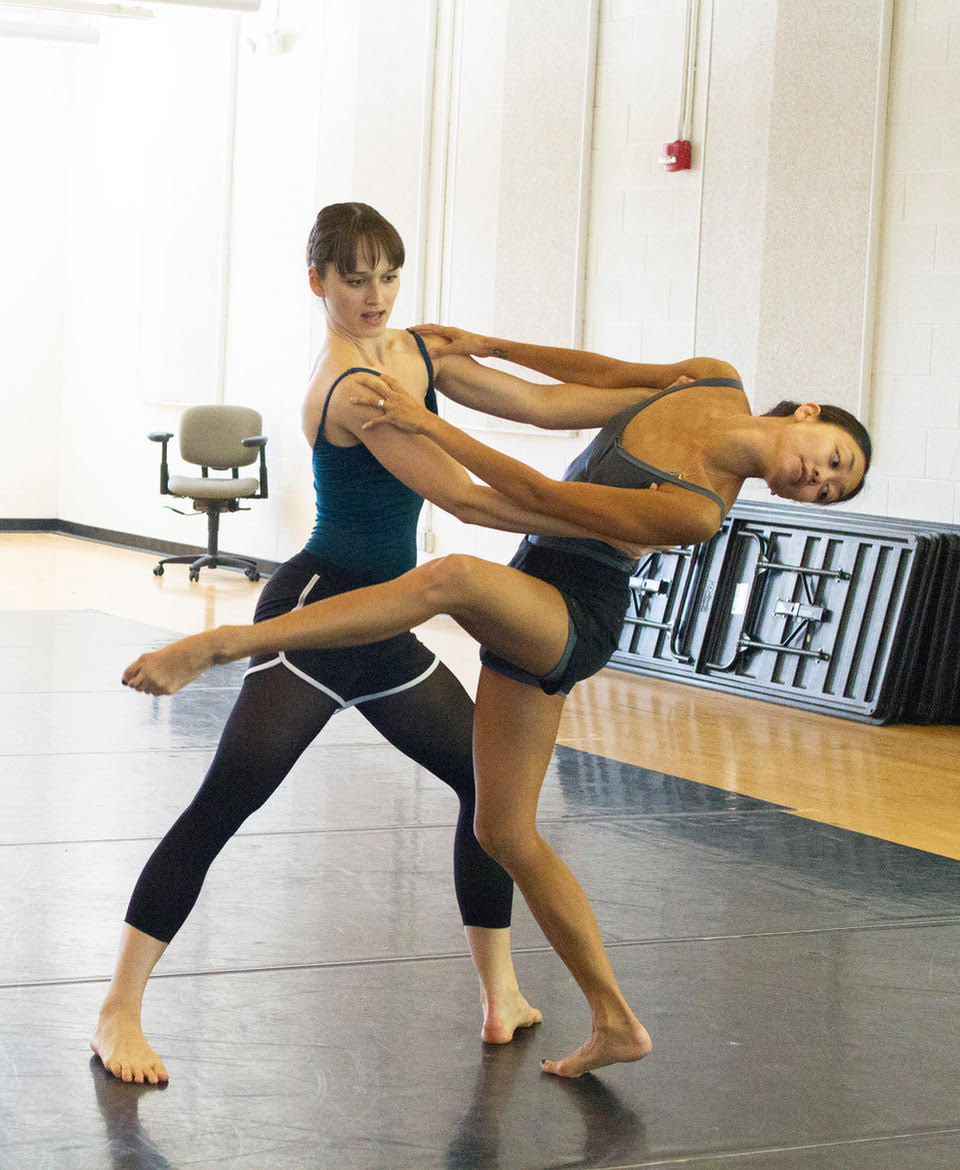
Dolkas, who danced for many years with Ballet West before becoming the associate director and principal faculty for Ballet West II, says in an interview with The Utah Review that from the time she received news of the commission she knew the work would be based on the #MeToo movement and women’s relationships with each other.
Empatizzare will be given its world premiere by Ballet West artists Olivia Gusti and Sayaka Ohtaki on Friday, June 22, at 5:45 p.m. on the Festival Stage. It will be the closing piece on a program of six works performed by RUUDDANCES, LLC featuring the company performers as well as Ballet West Academy students and dancers of Ballet West’s professional training division. Christopher Ruud, who has received two dance commissions from the festival, is the artistic director of his company ensemble.
Ruud says that the Dolkas was the natural candidate for the commission this year. “Peggy and I have danced every major ballet and we have been perfect partners,” he adds.
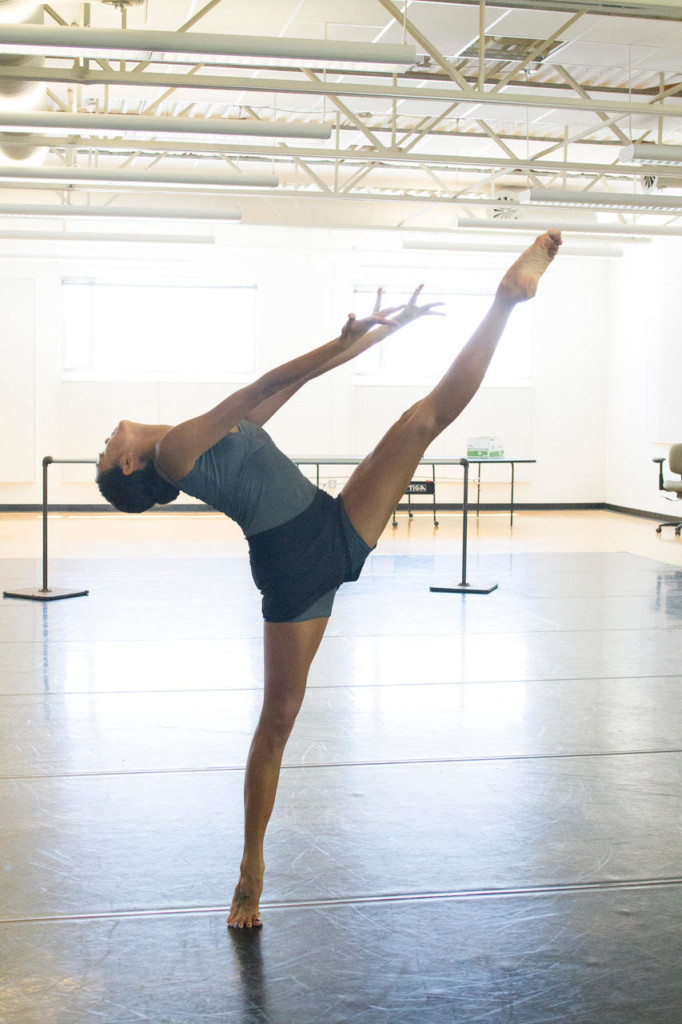
Dolkas says that while in her own experience she did not relate to the movement directly, she was deeply moved and affected by the testimonies of sexual trauma. “I wanted to do something and I realized that I could do it through ballet,” she explains. “I had listened to those voices recognizing that empowerment comes through empathy.
Dolkas had absorbed the volumes of experiences realizing that sympathy is awkward and incomplete. Women had endured incomprehensible, unbelievable challenges and have been living not just with sadness but also with unmerited shame and guilt. And, in Empatizzare, a seven-minute work, it is not sadness that drives the work because it would diminish the experience of victims but empathy which leads to healing.
Initially, one dancer’s movements evoke fragility and vulnerability while the other moves with a sharper, more athletic character but then she reverses the dynamics for each dancer. They start separated from each other but then as the work proceeds, there is more partnering movement. Thus, the sense of empathy grows organically from an almost imperceptible point at the outset to a fully realized state by the end of the work.
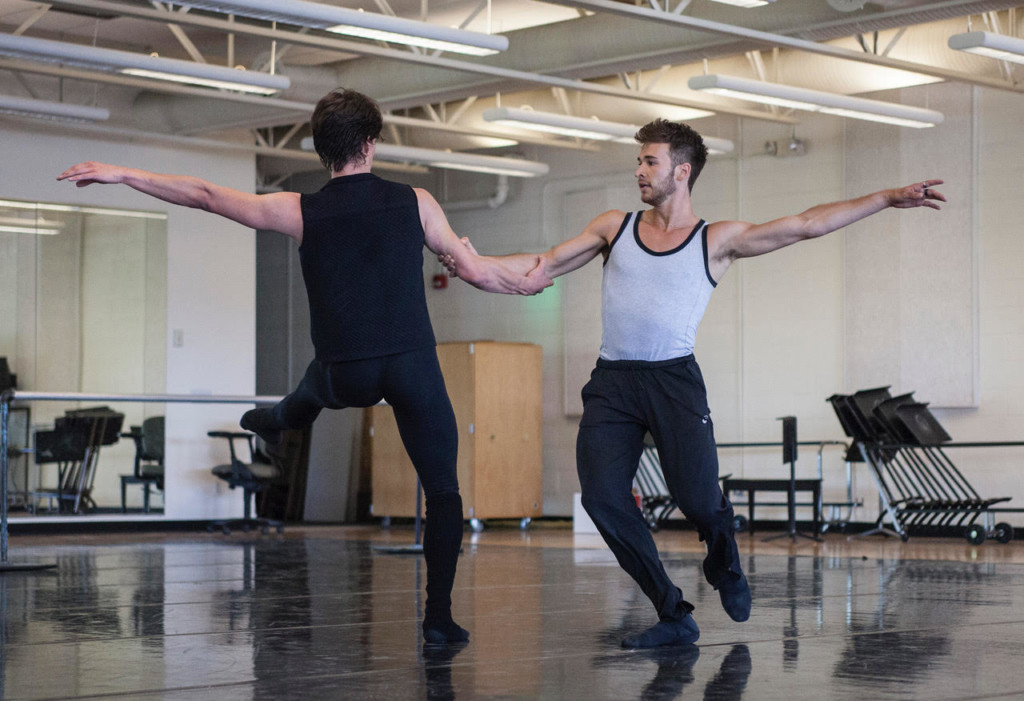
For the accompanying music, Dolkas turns to the violin, including Anna’s Theme from the soundtrack of The Red Violin film, which was composed by John Corigliano and played by Joshua Bell. Others include Bach, Johann Paul von Westhoff, one of the most prominent violinists in 17th century Baroque music, and Daniel Hope, violinist who won the European Cultural Prize in 2015. Costumes are designed by Christopher Larson, the wardrobe manager for the Nevada Ballet Theatre.
The remainder of the program adds its own finely rendered contemporary nuances to the classic ballet form. Ruud says the program was curated on partnership “in all its facets.” Thus, there are works for man and woman, two men and two women comprising the festival performance. The counterpoint is expanded with the juxtaposition of contemporary and classical works.
From the classical repertoire, Ruud selected two of his most favored pas de deux and among the most famous: Le Corsaire, choreographed by Marius Petipa to the music of Adolphe Adam, and Giselle, choreographed by Jean Coralli and Jules Perrot to the music of Adam.
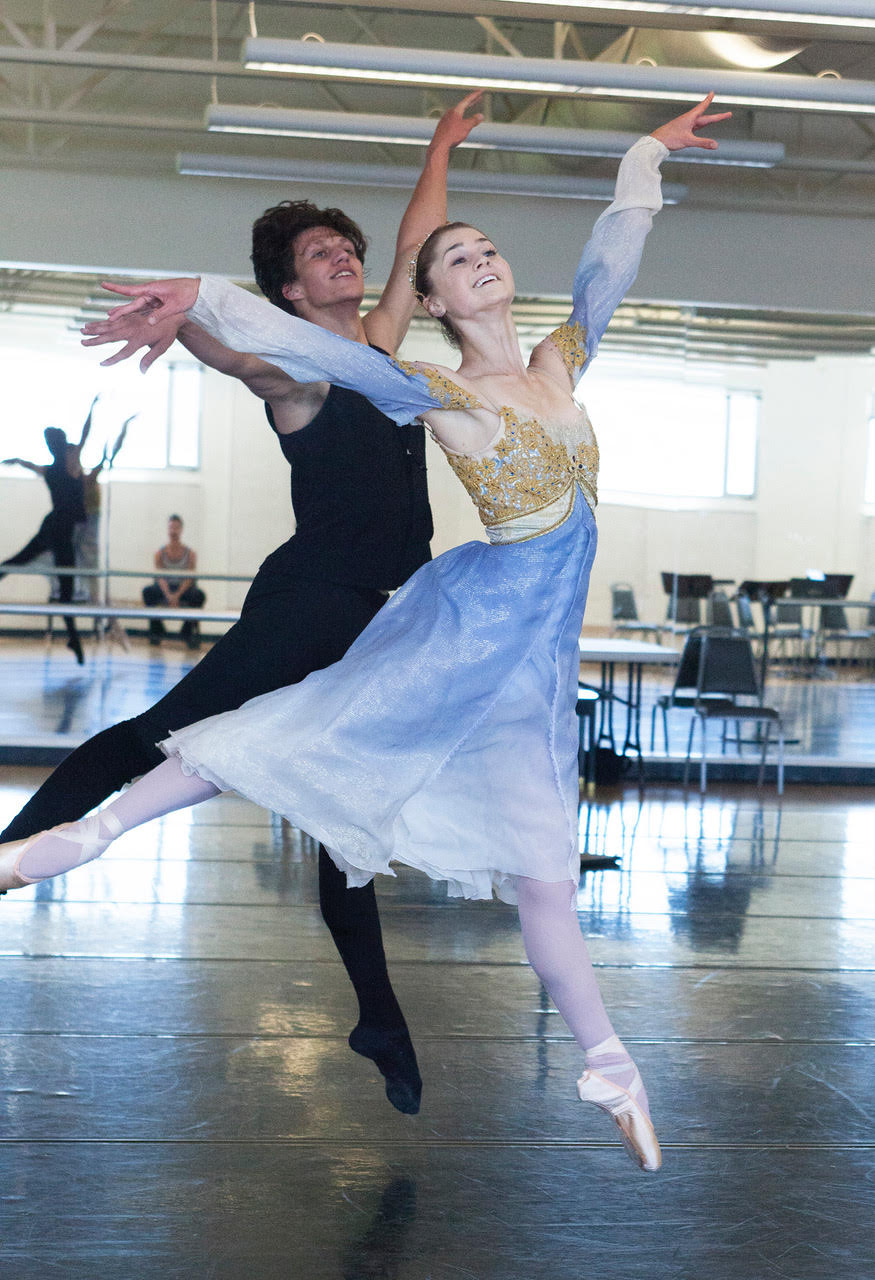
Both are brilliant displays of technique and virtuosity. Le Corsaire is intriguing because the principal male character is an antihero and it is the woman who exhibits the strength and resolve expected of the heroic character. The Le Corsaire pas de deux will be performed by Janae Korte and David Huffmire, young artists who have completed the professional training program with Ballet West. Korte is headed to Sarasota Ballet and Huffmire will be joining Ballet West as a professional artist.
In Giselle, Ruud says that he considers Albrecht, the philandering duke, to be his favorite character to dance. Giselle, indeed, is the selfless heroine who protects Albrecht from the Wilis, who haunt the woods at night and force any man they ecounter to dance until he drops from complete exhaustion. Of course, the kicker is that even after Albrecht ignores Giselle’s love she ultimately forgives him for his treacherous acts. The pas de deux from Giselle will be performed by Ohtaki and Tyler Gum.
The program also includes a work by Ruud that he created several years ago but has not been performed in a formal setting. He had created a set of three duets involving different partner configurations for a competition organized by the New York Choreographic Institute. Of the three, he believed that the duet for two men was the strongest work. “It’s about brotherhood,” Ruud explains, “and it’s about not having the competition to decide who wears the crown, in all forms of male relationships. It asks men to pause and take off the crown.”
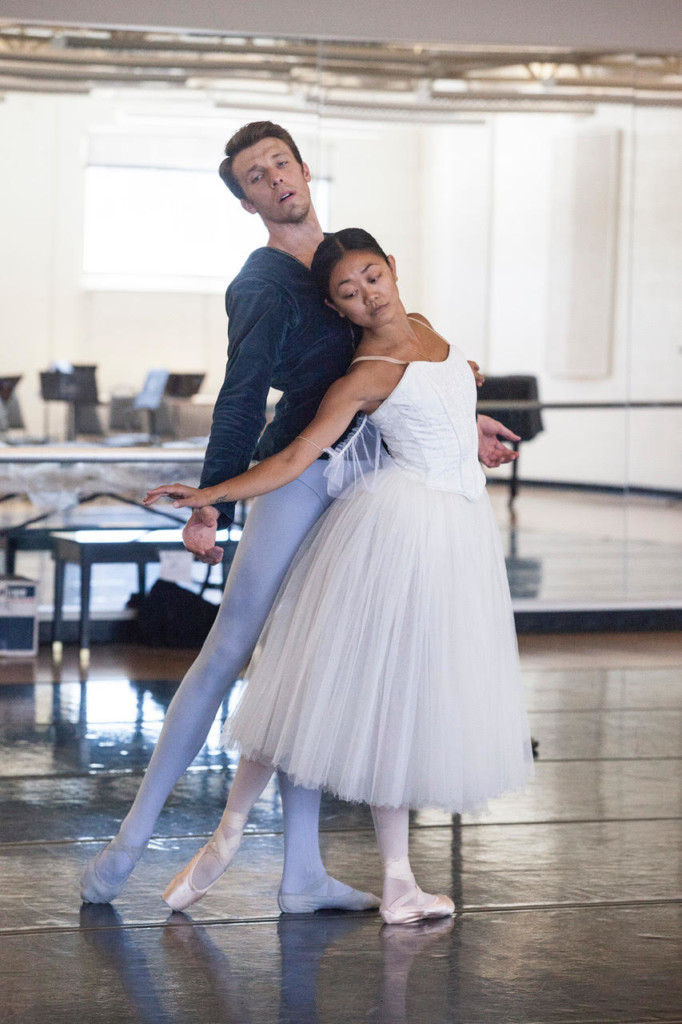
The four-minute work is titled Strum, featuring Indian steel string guitar music, and will be performed by Joshua Shutkind and Huffmire. The work is expectedly an intense workout.
Two other works on the program feature students at various levels from the Ballet West Academy, selected by Ruud as exemplary of the high standards established in the training of future dancers. The program’s opening work is Sonder by Peter Merz, director of the academy and will feature students between the ages of 17 and 19 who are at the high level of student training. The other work is the pas de trois from the Paquita ballet, originally choreographed by Joseph Mazilier to music by Édouard Deldevez and Ludwig Minkus. It features three advanced level students who are 14: Mia Tureson, Victor Galeana and Aria Smith.
The festival’s dance commission program was started in 2011 and has involved Ballet West every year.

